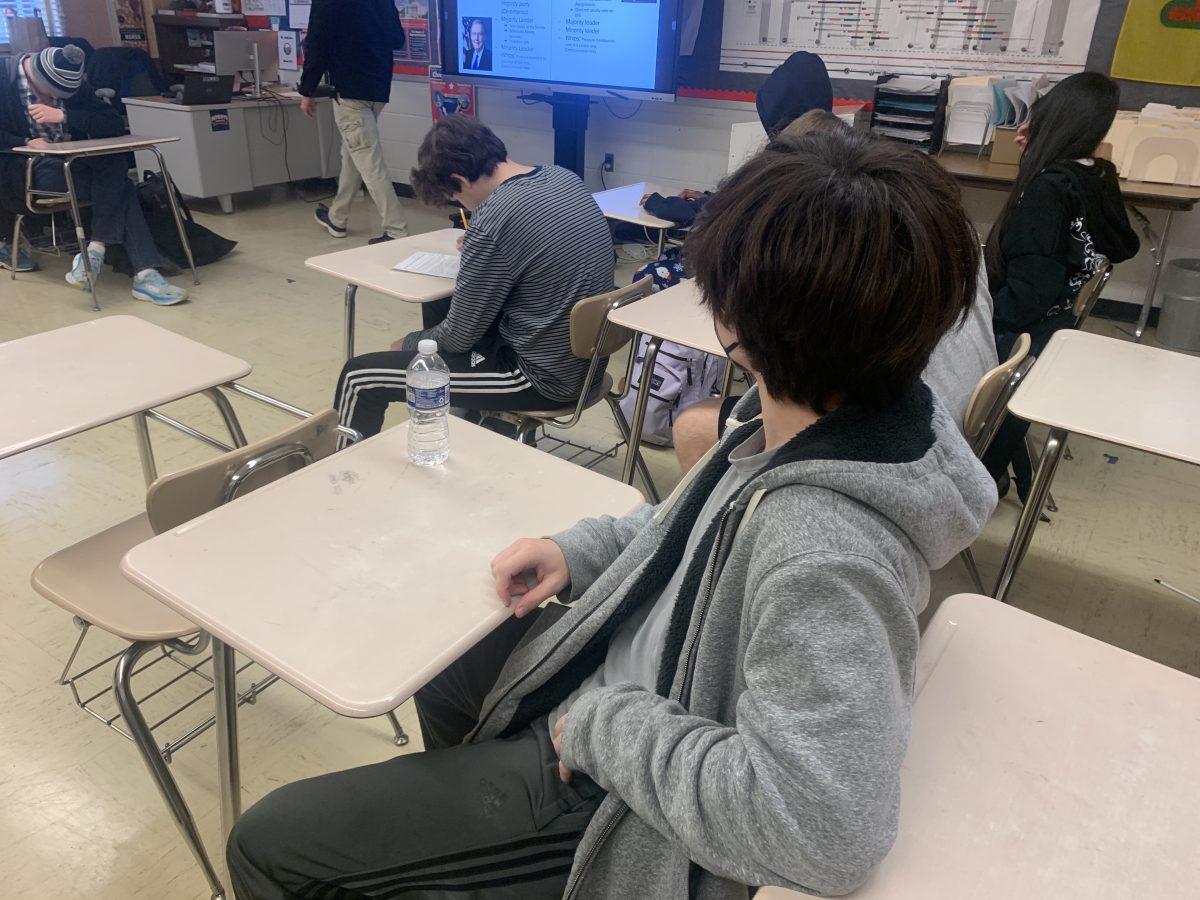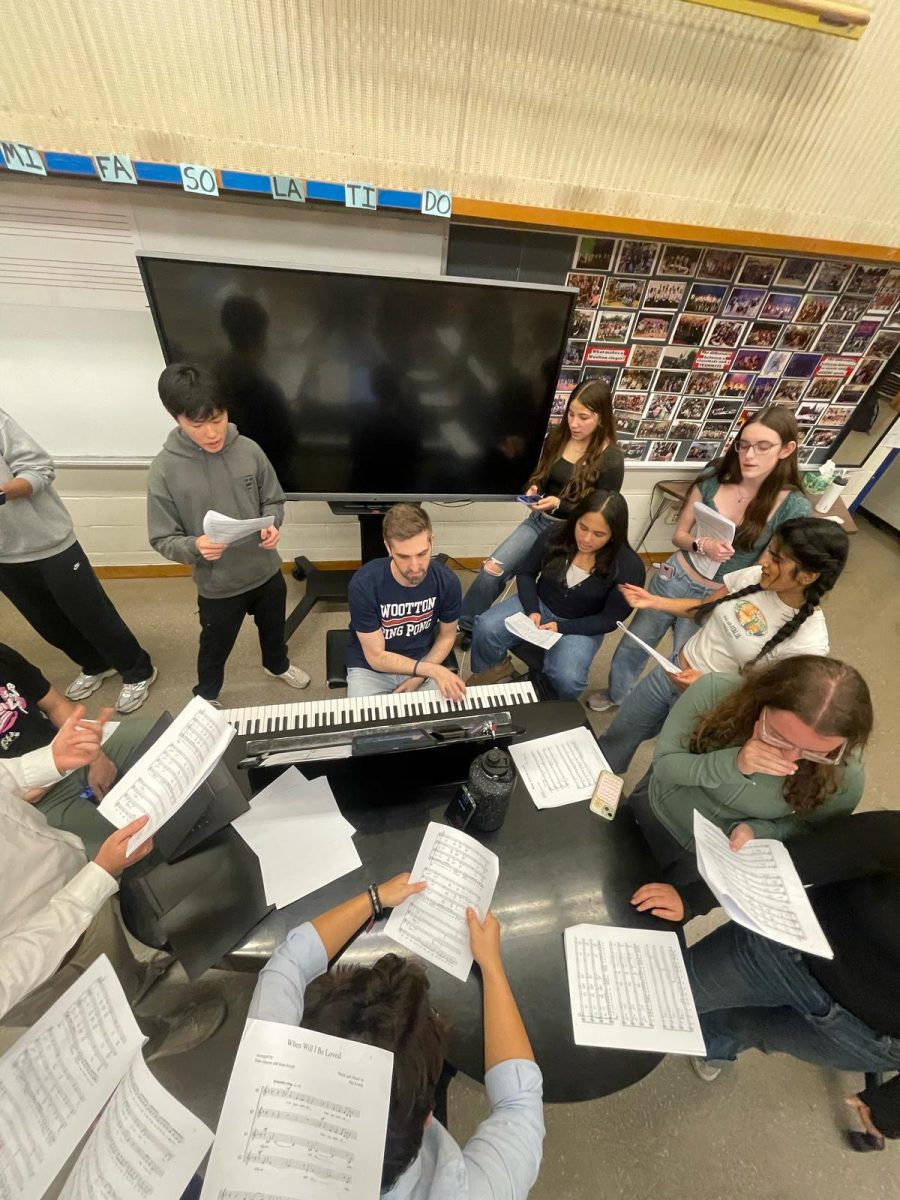Junior Toby Subiela is sitting in his history class, slaving away at an assignment. He’s been focused the entirety of the period, knocking out half of his project in 30 minutes. His favorite a song is playing in his ear; Subiela loves to use his Airpods. However, his teacher enforces a rule that stifles his study habits: when lessons and lectures are over, he is not permitted to listen to music. Students and teachers around the school disagree about this policy, claiming different advantages and disadvantages to listening to music while working. Junior Teemo Taiwo said, “My computer science class prohibits listening to music, but it’s the class where I benefit from [music] the most.”
Certain attendees of the school think headphone use should be restricted at all times in class. They argue that it inhibits student productivity causing distractions and loss of focus on their classwork. Opponents also think music interferes with a student’s absorption of knowledge and doesn’t allow them to complete assignments to the best of their ability, taking attention away from their work and instead focusing it on their music. Daniel Levitin, a neuroscientist, was featured in a Business Insider article. He said, “listening to music also takes up some of your attentional capacity, meaning that if you listened to it while working, you’d have fewer resources left to direct toward the task at hand.”
This argument, however, is invalid; headphones don’t disrupt focus, they enhance it, especially in educational scenarios. If a person is listening to music in a noisy room, as classrooms often are, headphones and music will cancel out the noise and allow the person to concentrate more closely on their work. Because classrooms often contain multiple students at a time, this science is applicable to school. Music can also help a student get into their work zone, a level of focus that enables them to center on one specific task for an amount of time. Their work zone is where a student will be most efficient.
Not only does music affect a student’s focus, but it increases their drive to get things done. When a student’s favorite song is playing in their ear after a long, hard day of classes, students are more likely to perk up with some motivating music. Music also decreases the desire for other temptations such as electronic use or social interaction with peers; with one form of media being put to use while a student works, there is less need for another. Additionally, music can act as a relaxant to a stressful environment.
Truly productive students should listen to music while they work. If you find yourself struggling With study habits and inefficiency at school, I suggest you listen to music. And the next time you see one of your teachers who has banned headphone usage in their classrooms, I urge you to inform them about the benefits and to let them know that studying is subjective; different strategies work for different students. You should at least have a choice on how to study.






![The 2025-2026 Editorial Board Alex Grainger, Cameron Cowen, Helen Manolis, Emory Scofield, Ahmed Ibrahim, Rebekah Buchman, Marley Hoffman, Hayley Gottesman, Pragna Pothakamuri and Natalie Pak (Chase Dolan not pictured) respond to the new MCPS grading policy. “When something that used to be easy suddenly becomes harder, it can turn [students’] mindset negative, whereas making something easier usually has a better impact. I think that’s where a lot of the pushback comes from. But if you put emotions aside, I do think this change could help build stronger work ethic,” Ibrahim said.](https://woottoncommonsense.com/wp-content/uploads/2025/09/fqr5bskTXpn0LRQMmKErLuNKdQYBlL726cFXBaWF-1200x900.jpg)

